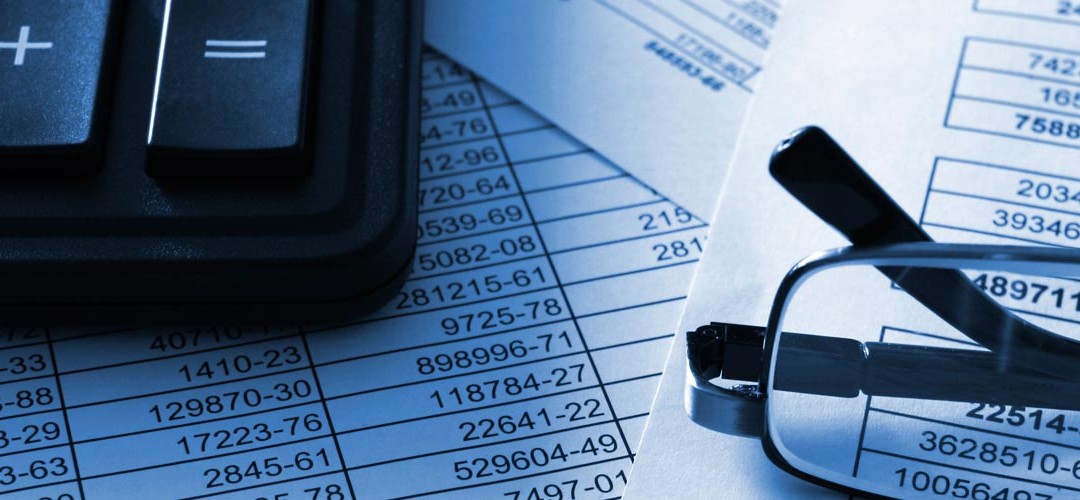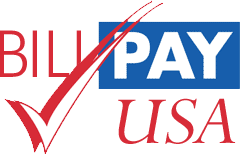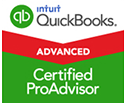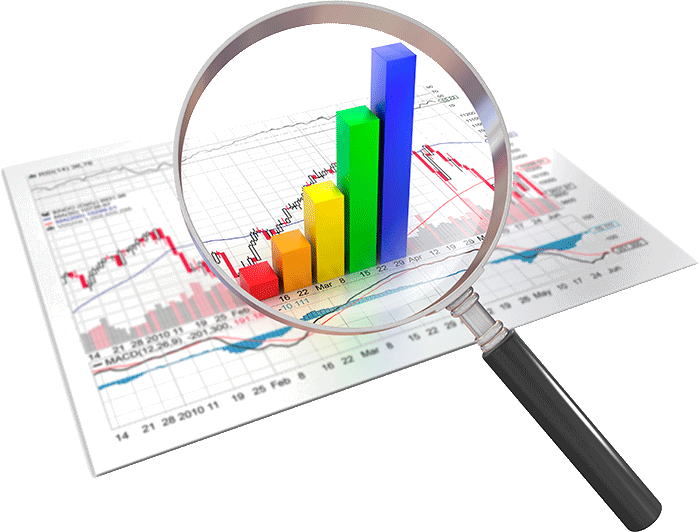Yes. We are experienced at preparing a variety of business and individual tax returns. We also provide tax planning and consulting.
For most family based accounts a once a year tax preparation is all that is required. Yet for business accounts monthly and quarterly accounts can help avoid the last minute tax time rush. In addition by providing accounting or QuickBooks services there is more that can be done to help see the operations being run efficiently.
Meeting the filing deadlines can be a daunting task so the most basic services typically include tax preparation. However we have a wide variety of accounting services to help you keep track and run your business effectively. In addition for a seamless integration with your business operations use Bill Pay USA services.
Why does it matter to use a licensed CPA?
Using a licensed professional gives more assurance that the person helping has been properly trained and able to give the best assistance and advice on filing tax returns, accounting and preparing financial statements type of things. Also only licensed professionals who meet stringent requirements can issue and independent accountant letter for your company. Typically being in financial matters trust is also a good barometer of building a relationship with the client. Licensed professionals also have to meet ethics requirements.
Fixed assets are property put into service. They include anything from a new phone to an automobile to a building. Land is a fixed asset even though you state its value separately from the structures on it. Sometimes it is difficult to tell if a repair or small appliance is an asset, improvement, or a cost of doing business. A close inspection can determine the correct accounting treatment.
Fixed assets also include physical items acquired in your business that are used year after year. A service life of the item is established to compute depreciation, which is expensed as a cost.
The benefit of owning such an item is that you realize its value over its expected life. This more reasonably approximates its economic value. It also allows for properly stated asset value, income, budgets and tax calculations.
You should keep invoices for fixed assets in a safe place and avoid mixing them up with general payables.
Why should I care if Fixed Assets in my business get expensed when they should be depreciated?
If a fixed asset is expensed, there is no longer a record of it on the books. But if you depreciate a fixed asset, it will remain documented on your balance sheet for its entire economic life.
Documenting your fixed assets is an important step in the business planning process. It helps you understand what your business has, what its worth is, and so forth. As your business grows can use this information to consider further investments, cash flow, cost of services and budgeting not to mention that it is required for proper tax preparation filings.
Once a small business grows it’s easy to lose track of what fixed assets the company owns and to remove items no longer considered in service. This will be helpful when seeking additional capital or loans, or considering property taxes and for insurance purposes.
What is a cash business and how does this effect my business?
A cash business is one where sales are primarily in physical cash notes or other “legal tender.” Restaurants or grocery stores typically handle a significant portion of their receipts in cash.
Deciding to maintain safe practices and controls is integral to establishing and growing your business. Once you can get past fixed costs then every extra dollar in revenue becomes pure profit less your product or service costs. The key to successful business include a positive overall attitude to safeguard business assets and put procedures in place to achieve those goals.
An accrual system more reasonably approximates the actual results of operations and the asset or liability balances that a company carries at a given time. Cash systems are simpler and less time consuming/costly to calculate which is why some small businesses and privately held companies rely on it. However, for income tax purposes the value of your inventory and fixed assets are recorded at their accrual value and may be considered a modified accrual even if the business has declared a cash basis.
How do I document credit card charges?
Use original documentation/receipts from the authorized card holder. For example, if it were a company card the revolving credit account would be charged every time an item is paid.
Credit card statements can be helpful but still would want to save the original receipts. The statement would serve to reconcile the company’s account. Writing checks to the credit card company directly to your profit and loss statements tends to cloud the authenticity of a business expense.
Given the new Limited Liability Company organization status that has swept the nation, it is easier than ever to protect your personal assets and create a distinct business entity. Generally an LLC is the most sensible choice as corporations can have more stringent rules regarding income and distributions.
However if you own either type of entity and register your vehicles, insurance, or land in your personal name, or use your business checking as if it were your personal checkbook without keeping good records, then it may not be clear whether there actually is a distinct business entity. If anything comes up in the course of business and a vehicle, land or contract is involved and not stated properly then unintended consequences could arise.
Can I pay myself without an official payroll?
That depends on the type of business entity. A “C” or “S” Corporation generally has an employee payroll. Otherwise making distributions can be an issue and causes conflict with Social Security. An LLC or Sole Proprietor typically does not pay itself but rather creates a “drawing” account. The draw doesn’t necessarily mimic your income but generally if there is income then there is draw available. Either way, you’re best options are to write a check to yourself and pay your personal and family expenses from your personal checking account. However, any personal items paid from the business are generally considered a draw.
There may be shareholder loans to the company as a result of a cash or covered business expense. This could be a payable or receivable but generally want to keep the receivables to a minimum. This could be a source of future cash payments that don’t affect the capital balance. Such loans may, in effect, be an easier way to keep track of certain types of transactions between owners.
Can I pay my employees without an official payroll?
Using the term “employee” implies that you have a payroll. A non-payroll “independent contractor” should be limited to, say, 30 hours a week to establish less-than-full time status.
The Department of Labor has several rules that employers must follow if they want a worker to be treated as an independent contractor and not an employee. Among them are:
“The individual (i.e., the worker in question) must be free from direction and control in connection with the performance of the service, both under his or her contract of hire and in fact; and
The individual’s service must be performed either outside the usual course of business of the employer OR outside all the employer’s places of business; and
The individual must be customarily engaged in an independently established trade, occupation, profession or business of the same nature as the services performed.
Proof that the individual is an independent contractor includes proof that the person has his or her own business, for example: a business card, listing, advertisement in the phone book or a publication, a tax identification number, etc.”
By not following the rules you will expose yourself to numerous gray areas including issues of workers compensation insurance. Hiring uninsured labor is a danger not only to you but also to your customer. That is why savvy customers often request proof of insurance for on-site jobs. If your independent contractor cannot furnish proof of insurance then you need insurance for uninsured subcontractors too.
There are other dangers in using independent contractors without following all the legal guidelines. For example, there may be issues regarding whether or not they are permitted to work in the USA or accept checks for payment. Or a “contractor” who seems to be working as an employee, upon being terminated, could file for unemployment compensation and create and issue with the Department of Labor.
For these reasons, keeping good personnel files and using a payroll company to keep track of all fillings is generally the best way to go. Using a third party employment agency can also work if the costs can be managed effectively.
This depends on the type of business you are in. When you register your business with your state you will be able to determine if you are subject to sales tax.
Technically you are not paying sales tax but collecting and remitting it to the proper state authority. The state will give you a certificate permitting you to collect the tax.
It can be extremely complicated to pay sales tax and determine the proper liability from month to month. New York State has recognized this and offers a vendor collection credit of up to $200 to ease the pain of the process. It is very easy for a company’s sales tax liability account to fall behind if nobody is paying attention to it. Therefore, you need to integrate the tax into your business. You should also determine if you are paying the tax based on cash receipts or the total sales receipts including amounts still due from customers.
What are fixed and variable costs and why are they important to my business?
There is a basic accounting concept that says once you cover your fixed costs then every dollar of sales you receive is pure profit, excluding variable costs which generally include the cost of sales or services.
There is a limit to how far you can go with this without further investment in fixed costs. Preparing an income statement that shows these concepts tends to help with the budgeting and planning process. Generally that would include a look at the gross margin which is income before expenses.
What is a complete set of financial statements?
The most basic and prevalent statement will always be the profit and loss since it shows the results of operations for the time period being covered. The second most popular one is the balance sheet which shows the financial position and owner’s equity in the business. It can be useful to understand this statement to better plan for long term growth. The last and least most understood is the cash flow statement which effectively helps plan for success and reconciles the beginning of the year cash to the balance at the end and shows the different sources and outflows of cash.






